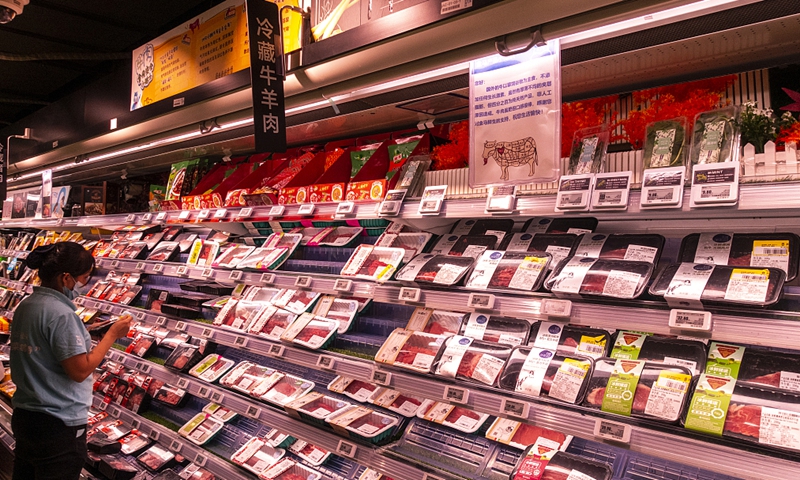Wuhan confirms coronavirus detected on Brazil-imported frozen beef
Source: Global Times Published: 2020/11/19 1:08:21

Imported beef is sold in a supermarket in Shanghai on August 20, 2020. Photo: VCG
The city of Wuhan, Central China's Hubei Province, detected on Wednesday the coronavirus on a package of frozen beef from Brazil which had been imported through a port in Tianjin, and had been distributed in the local market. No other positive tests for the virus have been reported.
The sample was found during an inspection by the Wuhan Center for Disease Control and Prevention of the city's entire imported cold chain.
Wuhan on Wednesday suspended sales of the Brazilian beef and sealed it in all stores involved in the city, and tested all sales venues and employees for the coronavirus.
The frozen beef in cold storage was sealed and the environment was sterilized. Test results of 400 samples from outside the cold storage unit, 115 samples from the outer packing and 145 employees were all negative.
An epidemiological investigation has also begun.
The 27 tons of Brazilian beef entered customs at a port of Tianjin on September 17, and was then shipped to Wuhan on September 23.
The Wuhan government said at a press conference on Tuesday that it had the strictest control over the import of cold-chain food, especially seafood and frozen meat imported after late June. Imported cold chain food should be managed by special workers in assigned storage sites.
Since June, the coronavirus has been found on imported frozen food or its packaging in more than 10 provinces in China, which has caused sporadic outbreaks in some regions.
On November 12, Wuhan CDC had also found three samples of beef imported from Brazil that tested positive for novel coronavirus in a local cold storage, which had not entered the market.
All 200 environmental samples and 112 employees in the cold storage tested negative for the virus.
The local CDC advised the public not to buy imported frozen food online, and warned the public to keep wearing masks and maintain social distancing.
Posted in: SOCIETY